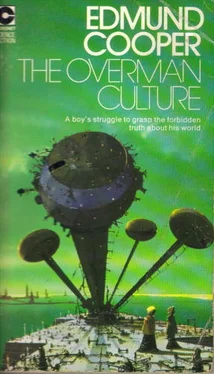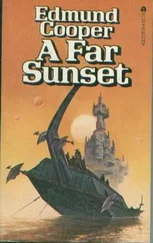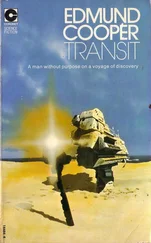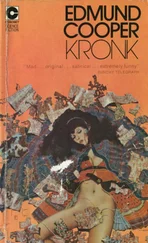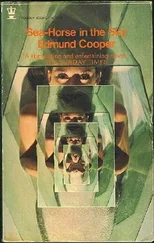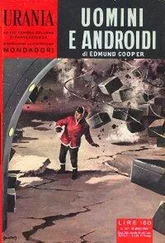Edmund Cooper - The Overman Culture
Здесь есть возможность читать онлайн «Edmund Cooper - The Overman Culture» весь текст электронной книги совершенно бесплатно (целиком полную версию без сокращений). В некоторых случаях можно слушать аудио, скачать через торрент в формате fb2 и присутствует краткое содержание. Город: London, Год выпуска: 1977, ISBN: 1977, Издательство: Coronet Books, Жанр: Фантастика и фэнтези, на английском языке. Описание произведения, (предисловие) а так же отзывы посетителей доступны на портале библиотеки ЛибКат.
- Название:The Overman Culture
- Автор:
- Издательство:Coronet Books
- Жанр:
- Год:1977
- Город:London
- ISBN:978-034017860
- Рейтинг книги:5 / 5. Голосов: 1
-
Избранное:Добавить в избранное
- Отзывы:
-
Ваша оценка:
- 100
- 1
- 2
- 3
- 4
- 5
The Overman Culture: краткое содержание, описание и аннотация
Предлагаем к чтению аннотацию, описание, краткое содержание или предисловие (зависит от того, что написал сам автор книги «The Overman Culture»). Если вы не нашли необходимую информацию о книге — напишите в комментариях, мы постараемся отыскать её.
The Overman Culture — читать онлайн бесплатно полную книгу (весь текст) целиком
Ниже представлен текст книги, разбитый по страницам. Система сохранения места последней прочитанной страницы, позволяет с удобством читать онлайн бесплатно книгу «The Overman Culture», без необходимости каждый раз заново искать на чём Вы остановились. Поставьте закладку, и сможете в любой момент перейти на страницу, на которой закончили чтение.
Интервал:
Закладка:
“As many as are tired of living in a cage. We must get all the fragiles together, somehow, and tell them what we know. Away from school. But how can we do that?”
Ernest thought for a moment or two. “I suppose we could say it was a matter of life and death, and swear them to secrecy.”
“Secrecy! There’s little chance of that.”
“Which may be a good thing,” said Ernest surprisingly. “After all, we want an end to secrecy, forever…. Why don’t we ask every one to rendezvous in Hyde Park by the old play school? It’s easy enough for us all to get to.”
“It is as good a place as any. In fact, it is singularly appropriate. Play school! We have been living in one all our lives…. Oh, well, let’s go home, Ernest, and go to bed for the last time like clockwork people. I must think what I am going to say tomorrow—assuming anybody turns up.”
“Some will come,” said Ernest. “Sheer curiosity…. Michael, I wonder what happened to the fragiles at North London High School? Perhaps they tried something like this.”
Michael sighed. “I think there never were any fragiles at North London High School—if, indeed there is a North London High School. It was just part of the experiment. That’s all.”
He looked up at the sky. The clouds were thinning out and patterns of stars were beginning to appear. I wonder, he thought, if those are the patterns one should be able to see over a city called London on a planet called Earth.
29
Play school was derelict—an empty house with no function. A shell with convolvulus and ivy climbing up the walls. A mausoleum of childhood. A memento mori.
Michael sat on the garden wall near the gate. He was alone. Emily and Ernest were busy—he hoped—persuading the other fragiles to come and hear the oracle speak.
Michael was alone; alone and cold in the late afternoon sunlight. Alone with bizarre thoughts, and memories that offered no comfort. Several times he had silently counted the number of fragiles that he knew. There were only forty-three. No matter how hard he tried, he could not make the number any larger. His mind had been playing tricks. He had imagined there would be more—considerably more.
Forty-three fragiles in the whole of London! Then how many drybones? Five hundred, a thousand, two thousand? Impossible to estimate. But the drybones had been sufficient for their purpose. There had been enough of them to continue—for a time, at least.
Michael shivered. The air was warm; but thoughts and feelings were bitterly cold. Sitting on the wall, he remembered the time when all the children at play school had been sent on an adventure walk to collect leaves. He remembered the little girl who had followed him, the girl with yellow hair who was called Ellen Terry. He remembered how he had tried to lose her; how he had tried to outpace her; how, in desperation, he had at last tried to kill her. But he had discovered that drybones don’t die easily.
And he remembered about the odd little boy who screamed that he hated children because they were not real people, because they could not take off their heads. The little boy who was carried screaming and kicking out of the room, and was never seen again. And Michael remembered how little Horatio Nelson had calmly advised him that if he wished to kill Ellen Terry he would have to push her out of a high window.
Poor Horatio. He had learned to hate and fear drybones before anyone else had…
Michael looked up and saw that a few groups of people were strolling across Hyde Park toward play school. Judging by the numbers, Emily and Ernest must have been far more successful than he had dared hope. Suddenly, he began to feel optimistic. But his optimism was short-lived. The figures were revealed not as fragiles but as drybones, all of them. More groups were following. They came toward Michael and stood a few paces away from him in a semicircle, silent, waiting.
They gazed at him, expressionless. Cold sweat began to trickle in rivulets down his face. The semicircle grew and grew. It seemed to contain almost every drybone that Michael had ever seen or known. There were his own parents, parents of other fragiles, teachers, drybones who were familiar background figures in streets and parks. There was Aldous Huxley—except that it couldn’t be Aldous Huxley, because Aldous Huxley was dead. And there was Arthur Wellesley —except that it couldn’t be Arthur Wellesley…
They all gazed at him in silence. Michael was shaking with fear. He wanted to run, scream, die. But pride made him stay seated on the wall. He wiped the sweat from his eyebrows, and hoped that the drybones did not know that he was half paralyzed with fear.
The waiting, the silent waiting seemed to expand into an eternity. But presently, other, smaller groups came across the park—the fragiles, at last. Michael was too numb to try to count them; but it looked as if most had come. They, too, were amazed at the presence of so many drybones, and stood for a while at the perimeter of the crowd, gazing anxiously at Michael.
Then Emily slowly worked her way through the crowd and came to the front. So did Ernest. So did one or two more fragiles. Their nearness cheered Michael a little, and strengthened him. Emily smiled and her smile somehow began to melt the freezing paralysis.
Michael stood up on the wall. As he did so, Queen Victoria’s hovercar came gliding swiftly across the park. It stopped close to the edge of the crowd. Out stepped Sir Winston Churchill, who then turned and gave his arm to support the Queen.
“Well, young jackanapes,” called Sir Winston in a surprisingly loud voice, “I hear you think you are important enough to babble some nonsense or other to the good citizens of London. Out with it, boy, then we can all have a laugh and go home to our tea. And mark democracy in action, boy. Even the Queen is prepared to listen to your blather—at least, for a time.”
“Sir Winston,” said the Queen, “pray do not be too hard upon the young man. Freedom of speech is one of the values for which we have waged a just and terrible war for so long.”
Michael stared at them. At last he understood. The pattern was to be intimidation and ridicule. He was to be discredited and humiliated in front of the other fragiles. That was how the truth would be destroyed.
He looked at Emily and Ernest. Their faces were white, drawn. But suddenly, Michael himself was no longer afraid. It was as if fear was a dark tunnel; and, miraculously, he had just come out at the other end into sanity and daylight.
“Your Majesty, Sir Winston,” said Michael calmly, “since you are not here by invitation, perhaps you would be good enough to remain silent. What I have to say is meant for my friends.”
Gasps and murmurs came from the crowd.
“Ho, ho!” roared Sir Winston. “The boy has spirit. He also claims to have friends. Where are they?”
“Here are two.” It was Ernest’s voice. He took Emily by the hand and led her to the play school wall to stand near Michael.
“Michael, come home. You are making a fool of yourself.” That was Father’s voice.
“That is the point!” shouted Michael. “It is you and all the other mechanical imitations of people who have been trying to make fools of us. You, the drybones, the ones who don’t bleed. You have tried to keep us as children, you have tried to destroy our independence of thought.”
“Your Majesty,” roared Sir Winston, “I greatly fear this is treason.”
“You are right, Sir Winston,” snapped Michael, “it is treason. I am rebelling against imprisonment, I am rebelling against tyranny of the mind, I am rebelling against a collection of machines with interchangeable faces. Above all, I am rebelling against my own ignorance and your deliberate deception. And eventually I am leaving this toy city you call London. And if you stop me, or if I disappear, all my friends—all the true people, the ones who can bleed—will know what has happened. And if that occurs, your own plans will come to nothing…. There are not many of us. You could easily destroy us all. But you will not do that because, if you did, you would be left without purpose and with nothing but useless machinery.”
Читать дальшеИнтервал:
Закладка:
Похожие книги на «The Overman Culture»
Представляем Вашему вниманию похожие книги на «The Overman Culture» списком для выбора. Мы отобрали схожую по названию и смыслу литературу в надежде предоставить читателям больше вариантов отыскать новые, интересные, ещё непрочитанные произведения.
Обсуждение, отзывы о книге «The Overman Culture» и просто собственные мнения читателей. Оставьте ваши комментарии, напишите, что Вы думаете о произведении, его смысле или главных героях. Укажите что конкретно понравилось, а что нет, и почему Вы так считаете.
